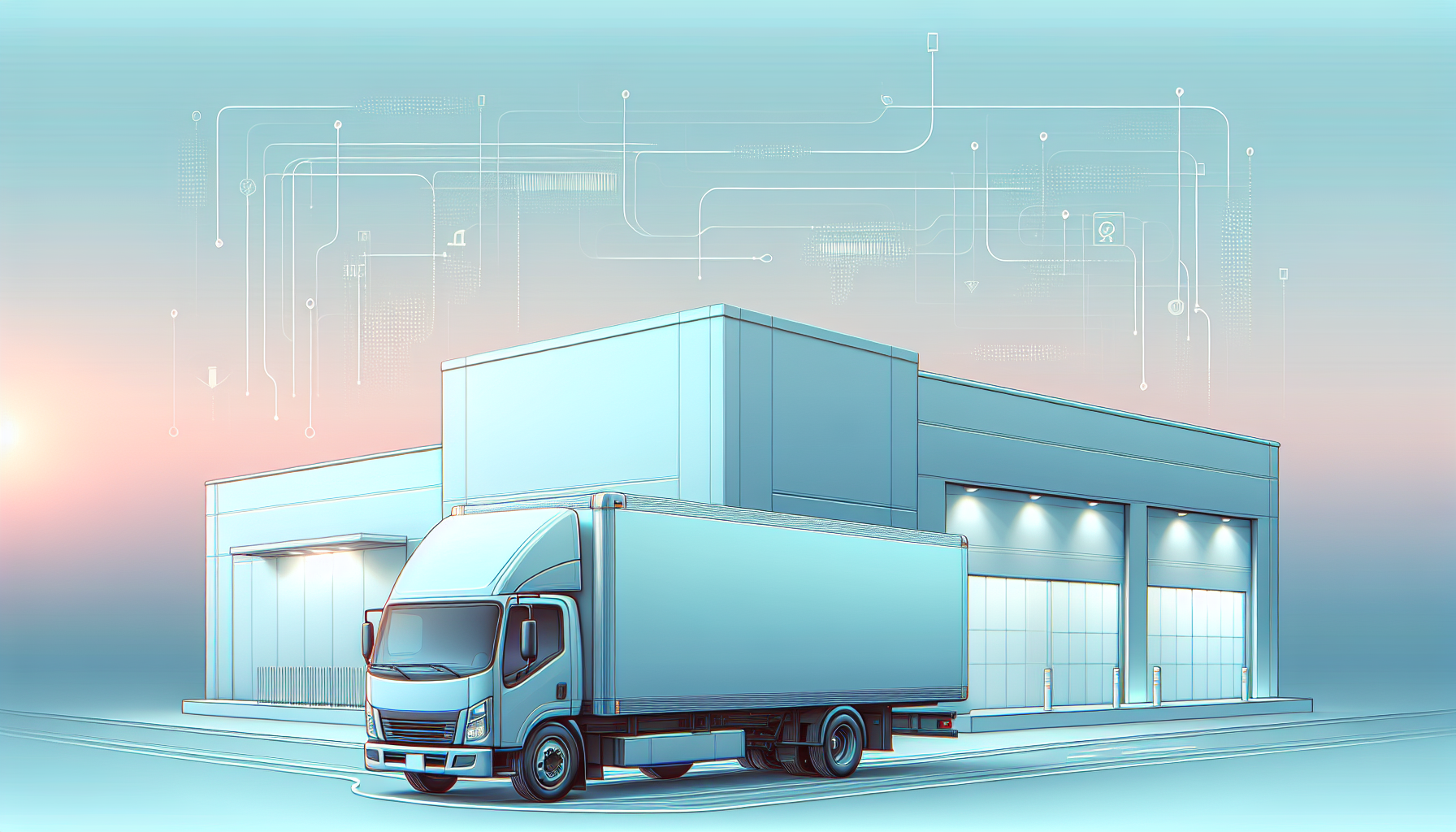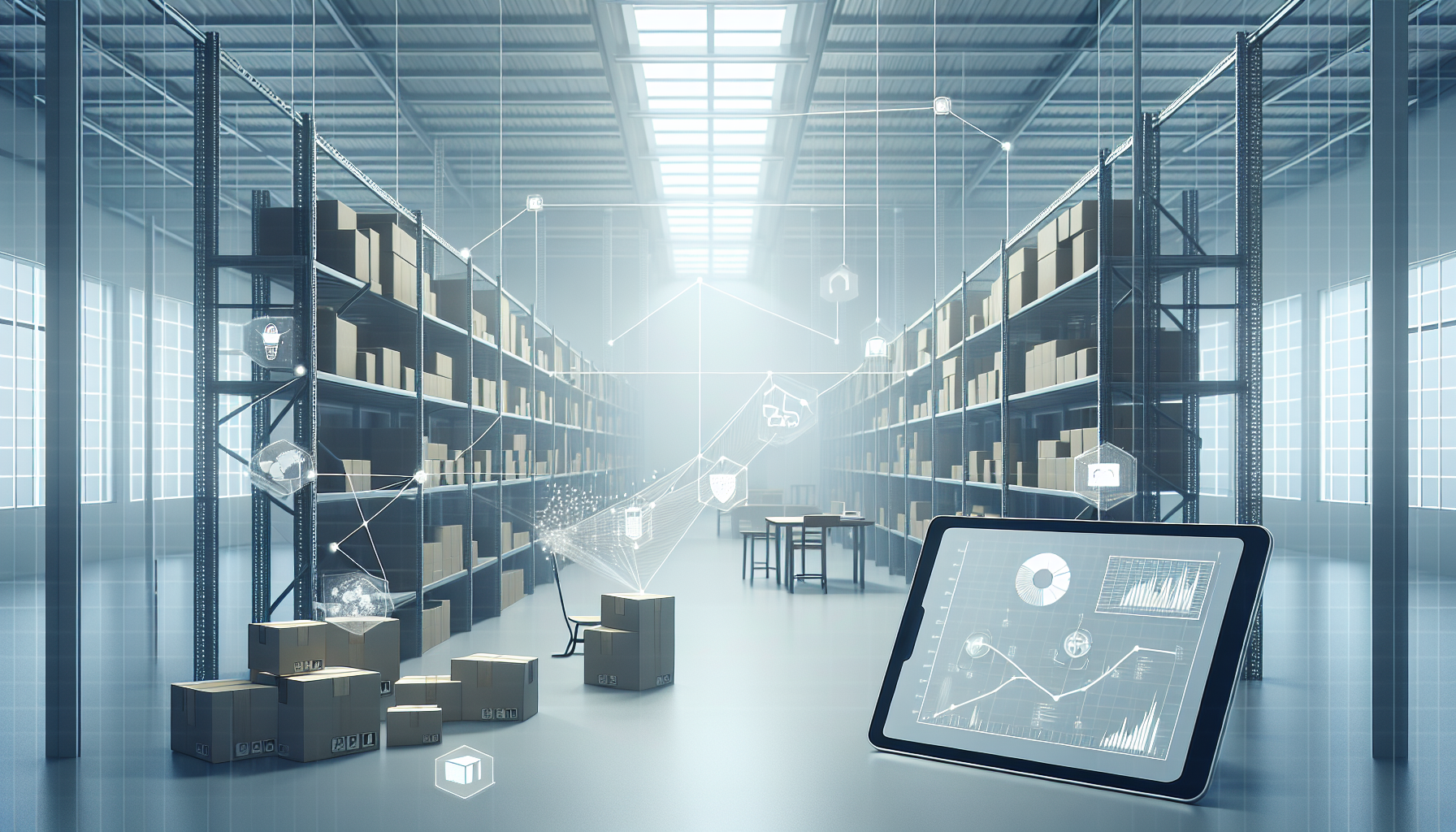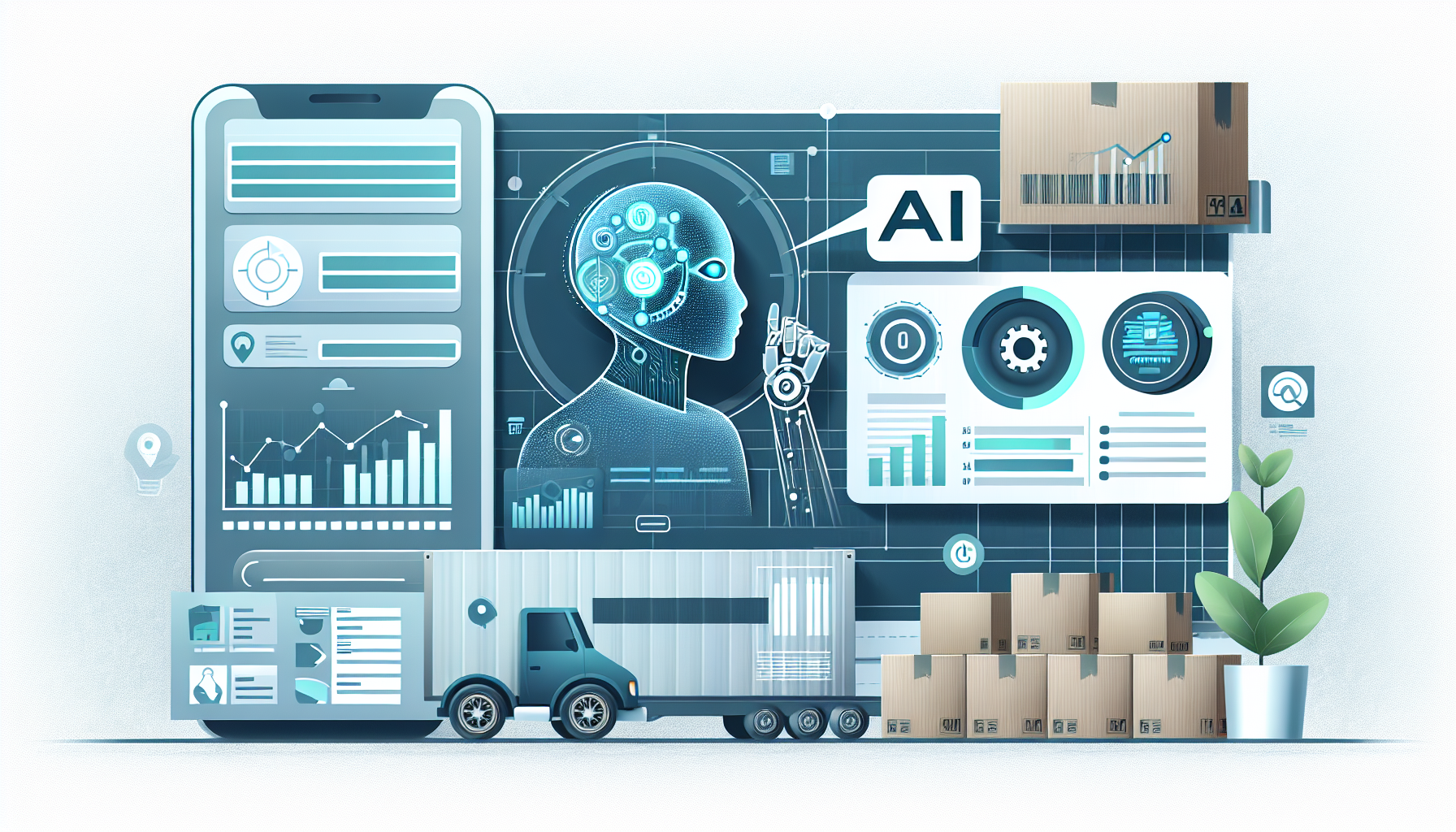Are you feeling overwhelmed with the complexities of logistics management? You’re not alone—many people struggle to keep up with the demands of inventory, supply chain, and delivery optimization. It can be a real headache trying to figure out how to streamline processes effectively.
But what if there was a way to simplify it all? Stick around, and I promise you’ll discover how using ChatGPT can transform your logistics operations, making everything from inventory management to delivery routes smoother and more efficient.
In this guide, we’ll explore exciting prompts that harness the power of ChatGPT for logistics automation. Get ready to uncover practical tips that will elevate your logistics game!
Key Takeaways
- Logistics management can be simplified using specific ChatGPT prompts for various tasks.
- Prompts for enhancing automation include checklists, AI applications, and strategy outlines.
- Identify repetitive tasks in your supply chain for better automation with ChatGPT.
- Utilize targeted prompts for inventory management to optimize stock and storage.
- Optimize delivery routes and reduce costs by analyzing traffic data and scheduling smartly.
- Effective demand forecasting with ChatGPT involves analyzing past sales and external factors.
- Improve freight cost estimation using data-driven prompts for cost analysis across carriers.
- Enhance customer support automation through standardized responses and troubleshooting guides.
- Elevate warehouse management by creating workflows and analysis for efficient operations.

Best ChatGPT Prompts for Logistics Automation
If you’re looking to enhance logistics automation, using specific ChatGPT prompts can streamline your processes significantly.
Here are some innovative prompts that can help improve your logistics workflows:
- “Generate a checklist for implementing automation tools in logistics management.”
- “List the top five AI applications for optimizing logistics operations.”
- “Provide a detailed outline for a logistics automation strategy using ChatGPT.”
- “Create an FAQ for employees on how to utilize AI in daily logistics tasks.”
These prompts focus on practical applications of AI, ensuring you get actionable insights tailored to your needs.
How to Use ChatGPT for Streamlining Supply Chain Management
Streamlining supply chain management with ChatGPT is easier than it sounds. Start by identifying repetitive tasks within your supply chain.
Next, employ ChatGPT to automate responses or generate data analysis reports.
Here’s how you can do it step-by-step:
- Map out your current supply chain processes to identify inefficiencies.
- Use ChatGPT to draft standard operating procedures for common tasks.
- Ask ChatGPT to analyze your supply chain data and identify trends.
- Implement automated alerts for supply chain disruptions using ChatGPT chatbots.
Incorporating these steps will lead to significant improvements in efficiency and responsiveness in your supply chain.
Prompts for Inventory Management Automation with ChatGPT
For inventory management, utilizing ChatGPT can drastically minimize stock issues and optimize storage.
Here are some targeted prompts to help with inventory management:
- “Create an inventory forecasting model based on previous sales data.”
- “Draft a procedure for automating stock level monitoring in real-time.”
- “List best practices for using AI to automate inventory audits.”
- “Generate a report template for analyzing inventory turnover rates.”
These prompts will enhance your inventory strategies and enable more efficient stock management.
Using ChatGPT to Optimize Delivery Routes
Optimizing delivery routes can save businesses time and money, and ChatGPT is a fantastic tool for this task.
To start, gather relevant data about your delivery locations and traffic patterns.
Then, employ these prompts for delivery route optimization:
- “Analyze the best routes for deliveries based on current traffic data.”
- “Create a delivery schedule that minimizes fuel costs while maximizing delivery speed.”
- “Draft a plan for integrating real-time traffic updates into delivery routing.”
- “Generate a weekly report on delivery route efficiency and suggest improvements.”
These prompts will assist in making smarter route decisions, ensuring timely and cost-effective deliveries.

ChatGPT Prompts for Demand Forecasting in Logistics
Demand forecasting is crucial in logistics for maintaining stock levels and meeting customer needs efficiently.
To maximize accuracy when using ChatGPT, consider the following prompts:
- “Analyze sales patterns from the last five years to predict future demand for each product.”
- “Create a template for a demand forecasting report including key metrics and visualizations.”
- “List external factors (like seasonality and market trends) affecting demand for our top 10 products.”
- “Draft an approach to adjust forecasts based on real-time sales data and market conditions.”
These prompts help develop a demand forecasting model that aligns closely with actual market behavior.
Enhancing Freight Cost Estimation with ChatGPT
Freight cost estimation can be a daunting task, but ChatGPT simplifies it with data-driven insights.
Use the following prompts to enhance your freight cost analysis:
- “Calculate total shipping costs based on weight, dimensions, and shipping method for a specific product.”
- “List potential cost-saving strategies for shipping based on different carriers and routes.”
- “Draft a report comparing historical freight costs for specific lanes or products.”
- “Generate pricing comparison tables to evaluate freight costs across various shipping companies.”
By using these prompts, you can create a more efficient framework for estimating and controlling freight expenses.
Prompts to Automate Customer Support in Logistics
Good customer support is essential in logistics to maintain client satisfaction and trust.
Here are effective ChatGPT prompts to automate your logistics customer support:
- “Create standardized responses for common customer questions regarding shipping times and tracking.”
- “Draft a troubleshooting guide for common logistics issues, like delays or lost shipments.”
- “Generate a chatbot conversation flow for handling order inquiries and complaints.”
- “Compile metrics to measure customer satisfaction based on support interactions.”
Implementing these prompts can streamline your customer support processes, providing quick and accurate information to clients.
Leveraging ChatGPT for Warehouse Management Solutions
Warehouse management is critical for maintaining efficient operations and inventory control.
Utilize the following prompts to enhance warehouse management using ChatGPT:
- “Develop a workflow for regular inventory checks and reordering processes.”
- “Generate an analysis of storage space utilization and suggest improvements.”
- “List automation tools that can be integrated to optimize picking and packing processes.”
- “Create a training guide for staff on new warehouse management software.”
These prompts are designed to improve your warehouse operations and ensure efficient inventory management.

How to Automate Reporting and Analytics in Logistics with ChatGPT
Automating reporting and analytics in logistics can save time and provide critical insights for decision-making.
Start by identifying the key metrics you want to track, such as delivery times, costs, and inventory levels.
Here are some prompts to help you automate your reporting processes:
- “Generate a weekly report template for tracking shipping costs and delivery performance.”
- “Analyze and visualize trends in on-time deliveries over the past month.”
- “Create a dashboard outline for real-time tracking of key logistics KPIs.”
- “Draft an alert system for significant changes in inventory turnover rates.”
Using these prompts will help you efficiently compile and analyze data to improve logistics performance.
ChatGPT Prompts for Compliance and Regulations in Logistics
Staying compliant with industry regulations is crucial for logistics companies to avoid costly penalties.
ChatGPT can assist by generating compliance checklists, summarizing regulations, and automating documentation.
Here are some specific prompts that can guide you through compliance tasks:
- “Create a checklist of compliance requirements for transporting hazardous materials.”
- “Summarize the key regulations affecting international shipping practices.”
- “Draft an internal memo outlining recent changes in logistics compliance laws.”
- “Generate a report comparing compliance standards across different regions.”
These prompts will streamline your compliance processes and ensure you are always in line with the latest regulations.
Integrating ChatGPT with Logistics Software for Better Automation
Integrating ChatGPT with your existing logistics software can dramatically enhance operational efficiency.
Begin by assessing which logistics software you currently use and identifying integration opportunities.
Here are some prompts to facilitate this integration:
- “Outline the steps for connecting ChatGPT with our inventory management software.”
- “Draft an API documentation for integrating ChatGPT into our order processing system.”
- “Create a user guide for staff on utilizing ChatGPT with our logistics management tools.”
- “List potential benefits of ChatGPT integration for our supply chain management processes.”
These prompts will help you leverage AI’s power to automate tasks and enhance collaboration across your logistics platforms.
FAQs
ChatGPT streamlines operations by automating communication, enhancing decision-making, and improving efficiency in tasks such as inventory management, route optimization, and customer support, ultimately leading to cost savings and timely deliveries.
Integrate ChatGPT by using APIs offered by your logistics software. Ensure compatibility by consulting documentation, then develop custom prompts that cater specifically to your operational needs for better automation and analytics.
Use prompts that request historical sales data analysis and market trends. Engage ChatGPT to predict future demand by considering factors like seasonality, promotional activities, and changing customer preferences to enhance accuracy.
ChatGPT can automate responses to common queries, provide real-time tracking updates, and handle complaints efficiently. This ensures quicker resolutions, improved customer satisfaction, and allows human agents to focus on more complex issues.
